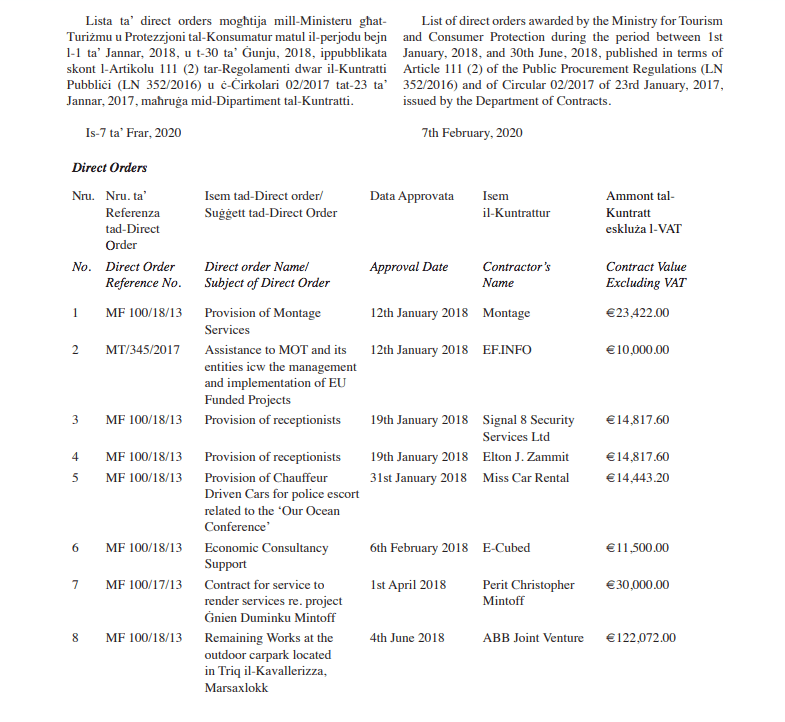A list of direct orders issued by Konrad Mizzi’s former ministry in 2018 was published in the Government Gazette on Friday, despite the law stating that all contracts must be published six months after being granted.
The direct orders issued by the Tourism and Consumer Protection Ministry between January and June 2018, during the tenure of Mizzi, totalled €131,071. Sources have also told The Shift that many direct orders are not being published at all.

A list of direct orders issued by the Tourism Ministry in 2018 and published in 2020.
By law, the Director of Contracts must “publish in the Gazette a notice of all awards of contracts including variations outside the limit of the tender conditions within six months of their award”.
The public procurement regulations state that contracts valued over the sum of €10,000 must be approved by the Department of Contracts and that it must occur only in “exceptional” cases.
“In exceptional circumstances, following the prior written approval of the Minister responsible for that Contracting Authority, who may delegate his authority in writing to the Permanent Secretary or any other senior official in his Ministry, a Direct Contract may be issued by the Direct Orders Office, for the direct procurement of public works/services/supplies with an estimated value ranging between €10,000 and €134,999.99”.
However, despite there being a clear description of the “exceptional cases”, the eight direct orders from Mizzi’s ministry all go over the €10,000 threshold, save one.
The law also states that a public contract may only be directly awarded to an entity, without a call for tenders, if it is for a service that can only be provided by that one specific company. However, some of the direct orders are for services that are widely available in Malta, such as the “provision of receptionists” and “economic consultancy support”.
Mizzi resigned as tourism minister in November following the arrest of Yorgen Fenech in connection with the assassination of Daphne Caruana Galizia. Mizzi has not been implicated in the murder but was named in the Panama Papers as the owner of one of the companies that were supposed receive large sums of money from 17 Black, the Dubai company owned by Fenech.












